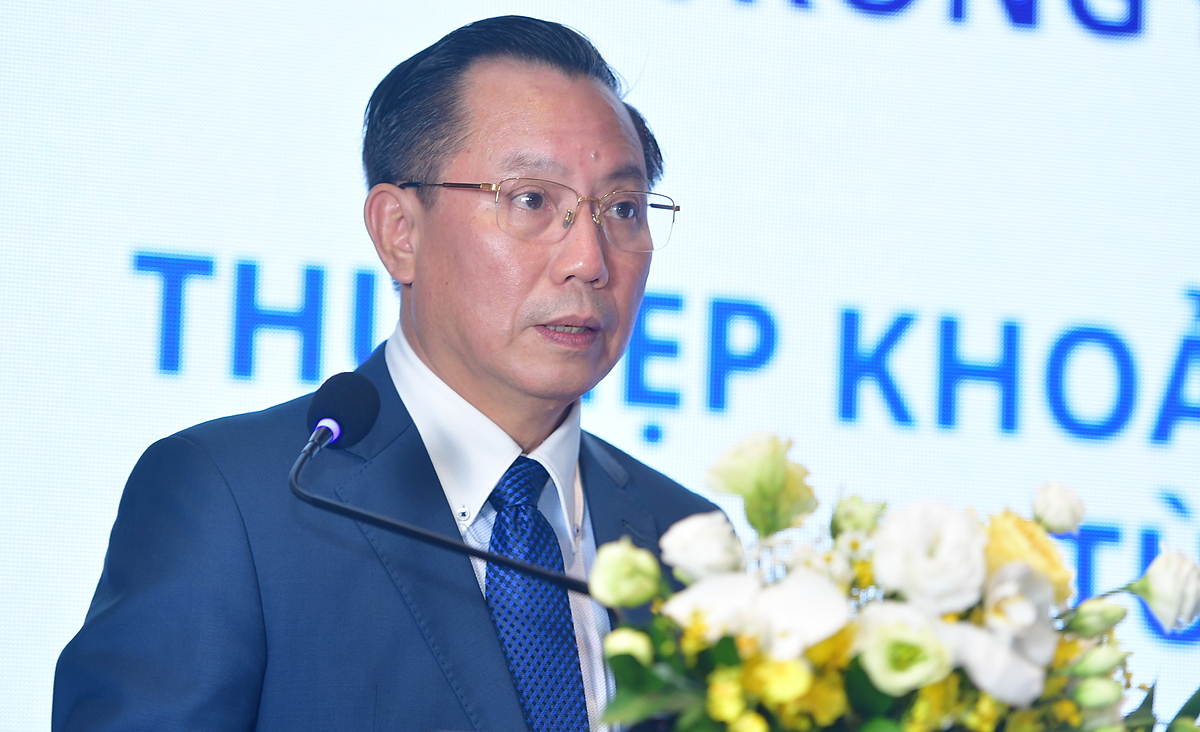"The challenge is ensuring patients feel comfortable seeking medical help without facing stigma," said Associate Professor Nguyen Anh Tuan, Deputy Director of the Department of Gastrointestinal Surgery at the 108 Military Central Hospital, at a press conference on 21/6 announcing the ACTION study. "Healthcare systems need to facilitate early and effective diagnosis and treatment of obesity."
The ACTION study assessed the perceptions, attitudes, behaviors, and barriers related to obesity management among individuals with obesity and healthcare professionals in 9 Southeast Asian countries. In Vietnam, 1,000 individuals with obesity and 200 healthcare professionals participated in an anonymous online survey from April to May 2022. The results were published in the journal of the ASEAN Federation of Endocrine Societies in late 4/2025.
Approximately 33% of participants with obesity perceived themselves as overweight or having a normal weight. Many reported experiencing weight stigma, affecting their personal relationships, job prospects, and career advancement.
Only 50% of the individuals with obesity in the study had discussed their weight with a healthcare professional in the past 5 years. Many believed weight management was solely their responsibility, assuming they could lose weight through sheer willpower. Others felt doctors couldn't help or lacked the financial resources to support weight loss efforts. Most had attempted to lose weight an average of 4 times unsuccessfully, citing lack of exercise and motivation as primary barriers. On average, individuals struggled with their weight for two years before seeking professional help.
40% of healthcare professionals reported feeling uncomfortable discussing weight unless the patient initiated the conversation. They often assumed patients were uninterested or lacked motivation to lose weight.
However, most patients who did discuss their weight with healthcare professionals reported positive experiences, feeling motivated, hopeful, supported, and relieved. Some, though, felt embarrassed, discouraged, confused, ignored, or blamed.
 |
Associate Professor Nguyen Anh Tuan from the 108 Military Central Hospital at the press conference on 21/6. Photo: Trang Phan |
Associate Professor Nguyen Anh Tuan from the 108 Military Central Hospital at the press conference on 21/6. Photo: Trang Phan
According to Associate Professor Tuan, both individuals with obesity and healthcare professionals in Vietnam lack sufficient understanding of the condition, despite its rapid increase. Vietnam has seen a 38% rise in overweight and obesity rates, ranking among the countries with the fastest-growing obesity rates in Southeast Asia. The estimated annual growth rate of adults with a high BMI between 2020 and 2035 is 4%, and 7% for children. Currently, the obesity rate among adolescents in Ho Chi Minh City exceeds 50% and is over 41% in Hanoi.
Dr. Georgia Rigas, a lecturer at the University of New South Wales (Australia) and a leading expert in obesity management, explained that for decades, obesity has been wrongly attributed to a lack of willpower. In reality, it's a chronic, progressive disease with complex causes, potentially linked to genetics, environment, metabolism, high-fat diets, lack of exercise, sleep deprivation, smoking, and certain medications.
"No one wants to be obese," she stated.
Obesity is associated with increased risk and mortality from serious conditions such as stroke, diabetes, coronary heart disease, cancer (tumor formation), depression, reduced libido, organ damage, obstetric complications, sleep disorders, osteoarthritis, and infertility. Deaths attributed to obesity-related risk factors in Vietnam increased by over 500% between 1990 and 2019, from over 6,300 to over 31,600 cases.
"Obesity is a recognized chronic disease requiring early detection and comprehensive, scientific treatment," Associate Professor Tuan said. "However, misunderstandings persist in Vietnam, creating a significant gap between patients and healthcare providers."
40% of doctors hesitate to discuss weight, while almost 50% of patients feel ashamed when asked about it. This psychological barrier significantly impacts treatment effectiveness. The challenge is to encourage open communication between patients and doctors about weight.
 |
Obesity surgery at the 108 Military Central Hospital. Photo: Doctor provided |
Obesity surgery at the 108 Military Central Hospital. Photo: Doctor provided
Experts emphasize the availability of various interventions for obesity. Early diagnosis and treatment can prevent serious complications. Treatment options depend on individual circumstances and severity, ranging from lifestyle changes and medication to surgery. Managing obesity isn't just about weight loss but improving overall quality of life and minimizing health risks.
During her visit to Vietnam from 20/6 to 25/6, Dr. Rigas shared her expertise with approximately 870 doctors, focusing on standardized obesity management models and the relationship between obesity and related diseases. She also presented clinical case studies and approaches to managing obesity in primary care settings.
Le Phuong












